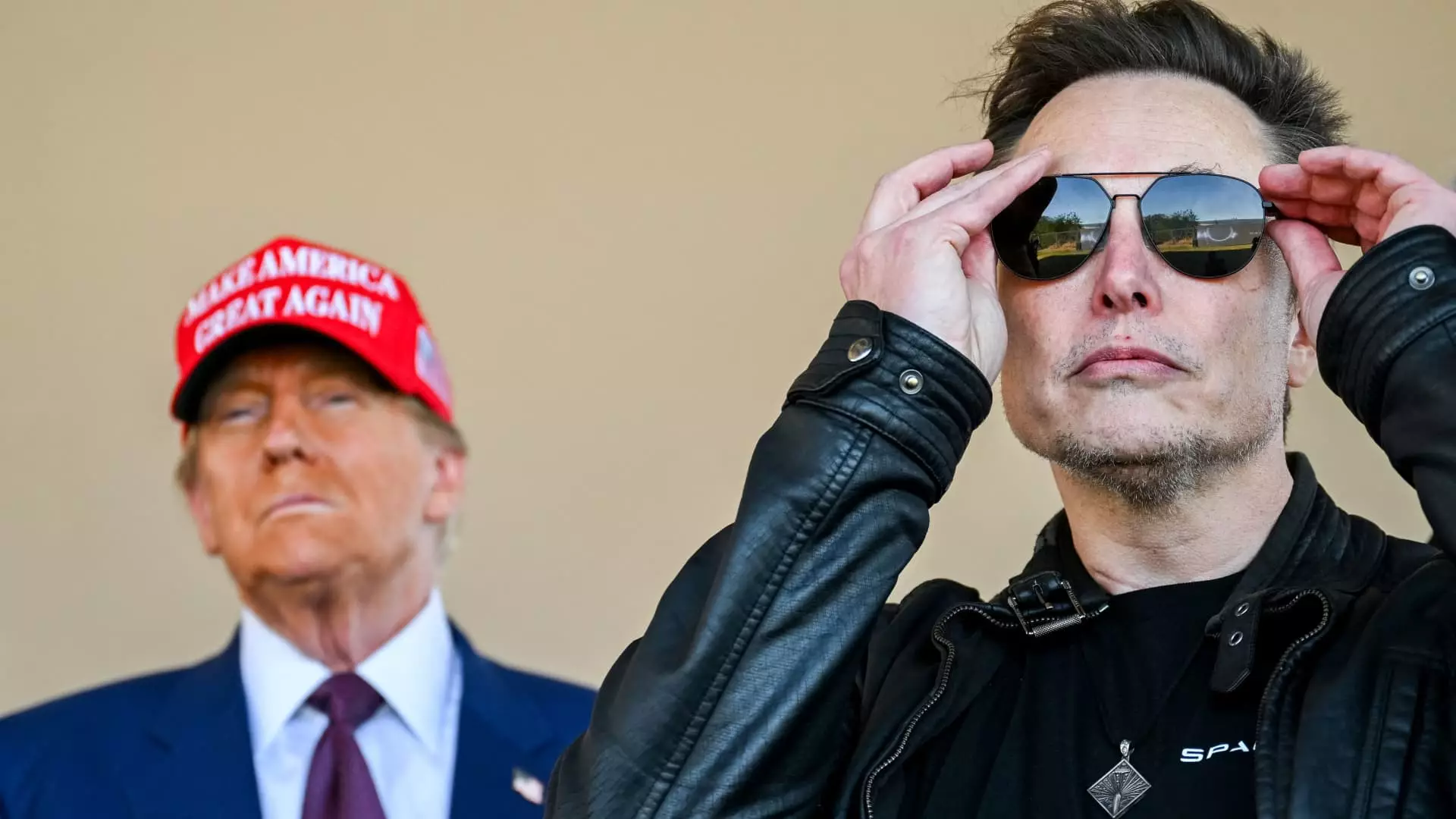Elon Musk stands as a towering figure in the modern business landscape, commanding an empire that spans electric vehicles, aerospace, artificial intelligence, and social media. His companies, including Tesla, SpaceX, Neuralink, and the newly named X (formerly Twitter), exemplify innovation and entrepreneurship at their peak. However, Musk’s ventures are not just notable for their technological advancements; they also underline his complex relationship with government regulation and federal contracts.
Central to Musk’s business success is the financial support provided by various federal contracts. SpaceX, for instance, has secured over $19 billion in government contracts, positioning it as a leader in the aerospace sector. This funding significantly enhances SpaceX’s stability and growth trajectory, providing resources that accelerate innovation. Industry experts, such as FedScout’s CEO Geoff Orazem, indicate that under a favorable administration, SpaceX could secure even more lucrative contracts, ensuring a steady influx of government funding that could reach billions each year.
Musk’s recent appointments and initiatives, particularly involving former Republican presidential candidate Vivek Ramaswamy, reveal a strategic intent to reshape the regulatory landscape that governs his businesses. Their leadership in the Department of Government Efficiency (DOGE) aims to revamp federal regulations, arguing that many existing laws are burdensome and unnecessary. In an op-ed for the Wall Street Journal, they proposed eliminating certain regulations via executive actions, stating a belief that deregulation would spur innovation. However, this initiative raises questions about the balance between fostering innovation and ensuring accountability.
Despite his reliance on government contracts, Musk has repeatedly expressed resentment toward government oversight, claiming it stifles creativity and progress within his companies. His hypothesis suggests that a less regulated environment would catalyze not only the growth of his businesses but also the overall tech industry. However, such a blanket approach to deregulation invites scrutiny, particularly when it concerns the accountability and governance of powerful entities like SpaceX and Tesla. Critics argue that reducing oversight could lead to unchecked practices that might endanger public safety or national security.
As Musk continues to navigate the intertwined realms of innovation and regulation, the imminent potential of a more favorable political landscape under a second Trump presidency could drastically affect the trajectory of his enterprises. While enhanced federal contracts and deregulation present opportunities, they also pose the challenge of maintaining public trust. Musk must demonstrate that his companies can grow responsibly and ethically, a narrative that he has yet to fully embrace.
Elon Musk’s formidable business empire undoubtedly plays a significant role in the future of technology and innovation. However, as he presses for deregulation and other reforms, he must grapple with the consequences that accompany his advocacy for reduced government oversight. A balanced approach may serve both his business interests and the broader public good, creating a sustainable model for innovation that doesn’t compromise safety and accountability. Only time will tell how this complex relationship between Musk’s ambitions and government regulation will unfold.


Leave a Reply
You must be logged in to post a comment.